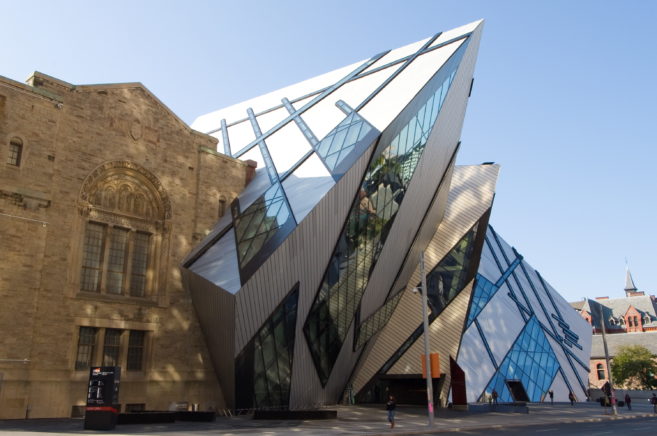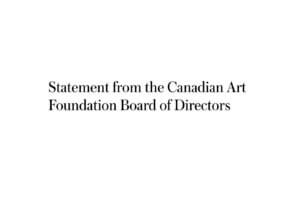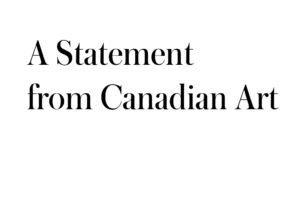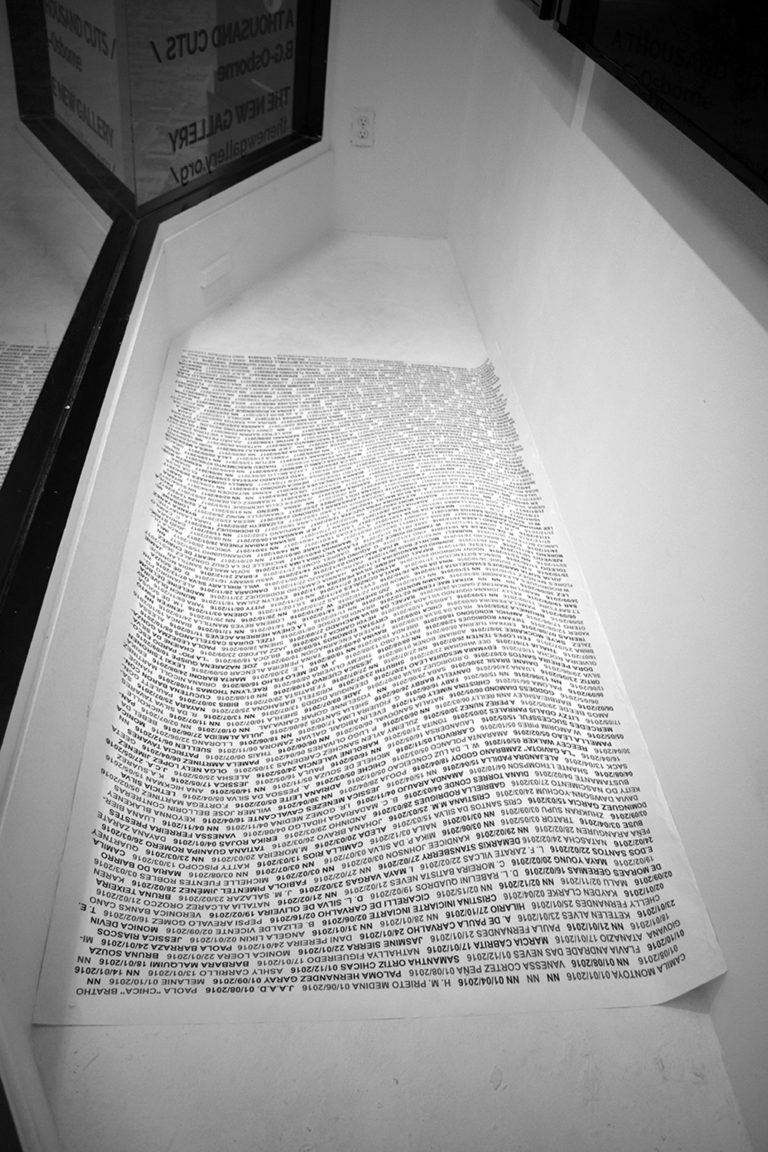 On September 12, Arts Commons told the New Gallery that this printed poster listing names of murdered trans people also had to be removed from the vitrine, along with the switched-off video monitors.
On September 12, Arts Commons told the New Gallery that this printed poster listing names of murdered trans people also had to be removed from the vitrine, along with the switched-off video monitors.
But on September 4, after verbal complaints from three women, Arts Commons turned the video monitors off. And on September 12, following meetings with New Gallery staff, Arts Commons said the gallery would have to remove the switched-off monitors, as well as a related printed poster listing the names of trans people who have been murdered, by September 14—or Arts Commons would remove them itself and replace it with a work from their collection until the end of the scheduled exhibition run on September 29.
“The decision regarding A Thousand Cuts was not taken lightly,” says Arts Commons programming director Jennifer Johnson in an email. “Our directors and members of the development team watched the video beginning to end and had a thorough discussion before reaching a decision….We think it [the artwork] carries a valuable message and has been created with love and care….This was simply not the appropriate venue for the piece.”
In its contract with the New Gallery and several other non-profit art spaces using vitrines, Arts Commons reserves the right to have the final say in the case of an unsolvable dispute. But whether this dispute was truly unsolvable is uncertain. The New Gallery says it put forward a number of public accommodation options that Arts Commons rejected: the placement of a QR code in the vitrine allowing viewers to access the video on their phones, placing a copy of an open letter Gilmer-Osborne wrote about the video in the vitrine, turning down the volume on the video, and running the video only after school-group visiting hours end at 3 p.m. For its part, Arts Commons says it suggested a one-night free public screening of the work in a private space within its facility, which the artist rejected: “I was offered one night to show the work in a closed space and invite guests, but I am attending school in Montreal and could not travel to Calgary for one night,” explains Gilmer-Osborne.
Some are also questioning inconsistencies in Arts Commons’ decisions around nudity and sexuality in exhibited artworks. CBC has reported that nude sculptures have been shown in the wider Arts Commons public spaces in the past. Arts Commons’ Jennifer Johnson contends those sculptural nudes are “different from sexually explicit content.”
But artist Beck Gilmer-Osborne argues that the brief nudes in their screen-based work are also “non-sexual nudity.” (Emphasis theirs.) They add: “A lot of cisgender people are still scared of trans people trying to tell their own stories/change the stories that have been told about us.”
There are also some inconsistencies apparent around Arts Commons’ free speech and censorship stance. Two months ago, in July, a petition called for Arts Commons to cancel or relocate a Jordan Peterson talk at one of its venues. At that time, Arts Commons CEO Johann Zietsman rejected the call to cancel. He stated, “We value diversity.” He added: “Freedom of speech means not censoring someone because we don’t agree with what they have to say.” (Peterson’s tour promoter, Live Nation, had rented the venue for a ticketed event in a private theatre space. By contrast, the New Gallery, like other non-profit galleries with public vitrine spaces at Arts Commons, does not pay for the space.)
And even though, with the monitors switched off, there is now no nudity (sexual or otherwise) in the New Gallery vitrines at all, Arts Commons’ Jennifer Johnson says the blank monitors need to come down by midday tomorrow, in addition to Gilmer-Osborne’s printed poster listing names of murdered trans people, because “we aim to maintain a certain level of programming through the facility; a trio of blank monitors looks unprofessional, and serves nobody.” Johnson adds: “We are working with the New Gallery on a course of action to move forward.”
For her part, Su Ying Strang says she is not directing New Gallery staff to remove Gilmer-Osborne’s artwork. It will be up to Arts Commons to do the removal, if that is what they wish, she says. A version of the video remains viewable on the New Gallery’s website.
“I think just shutting down the work and not having the opportunity to discuss with audience members why this work is really important for the artist to present in public is a missed opportunity for us to grow and learn together,” says Strang. “The New Gallery will not be taking the work down.”

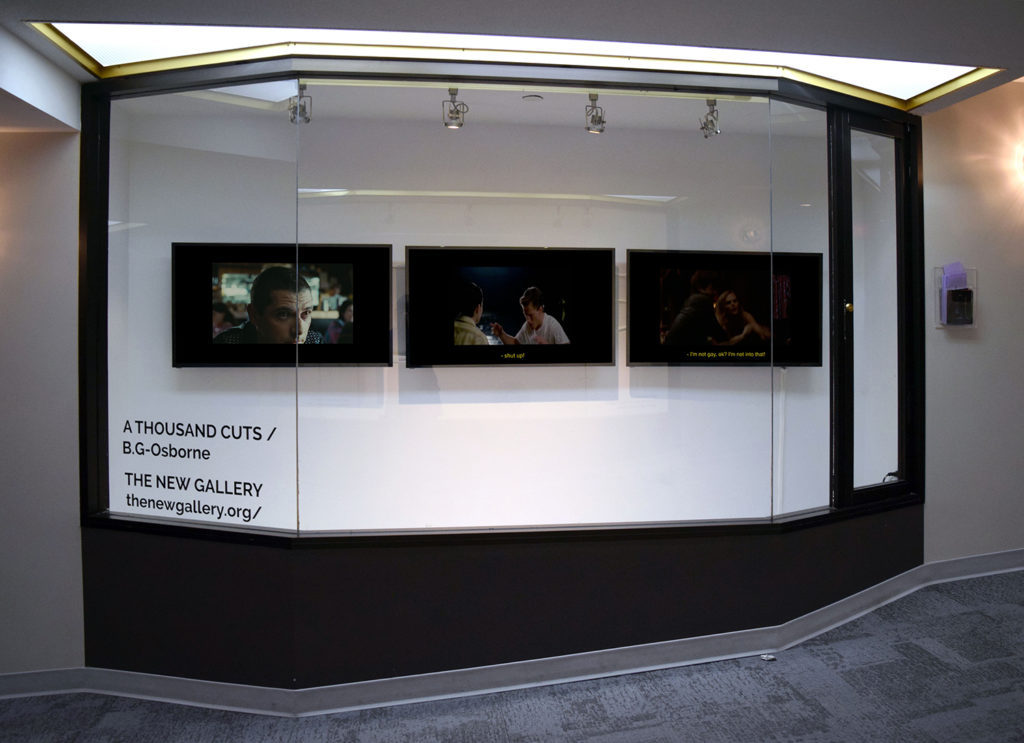 A view of A Thousand Cuts by Beck Gilmer-Osborne in the New Gallery vitrines at Arts Commons before the installation was shut off on September 4.
A view of A Thousand Cuts by Beck Gilmer-Osborne in the New Gallery vitrines at Arts Commons before the installation was shut off on September 4.
 On September 12, Arts Commons told the New Gallery that this printed poster listing names of murdered trans people also had to be removed from the vitrine, along with the switched-off video monitors.
On September 12, Arts Commons told the New Gallery that this printed poster listing names of murdered trans people also had to be removed from the vitrine, along with the switched-off video monitors.
